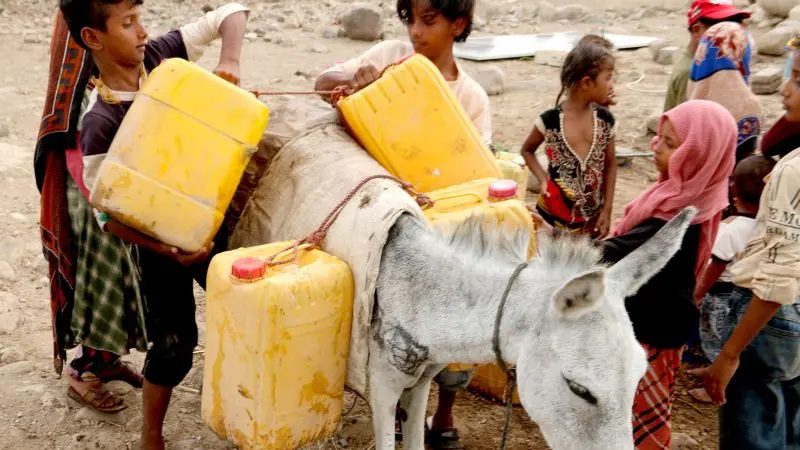4.5 million children in Yemen are out of school: Save the Children
On March 25, 2024

ALBAWABA – According to a report by the British NGO Save the Children, at least 4.5 million children are out of school, with displaced children twice as likely to drop out than their peers.
According to Save the Children’s data, displaced children are twice as likely to drop out of school, and while returning to their home area reduces their risk of them dropping out of school by 20%, persistent instability prevents them from returning.
According to the report, one-third of Yemeni families questioned had at least one child who has dropped out of school in the last two years, despite the UN-brokered truce, which went into effect in 2022.
“The ongoing violence and the collapsed economy in Yemen have pushed two-thirds of the population below the poverty line and displaced an estimated 4.5 million people or 14% of the population, most of whom have been displaced multiple times” the report added.
Monthly school fees and textbook costs make education out of reach for many Yemeni families, with 20% stating they are expensive and unaffordable.
The vast majority of caregivers and children polled stated that the need to support their family’s income generation was the top cause of school dropouts.
The report surveyed a number of Yemeni families, voicing out their struggles as they enter their 9th year into the conflict.
Hani*, 48, is a teacher, who was compelled to withdraw two of his four daughters from school due to the high cost. “School expenses for each child can exceed 25% of my salary. My salary is 76,300 Riyals (approximately US$46), and that is not even enough to cover the food we need”.
Save the Children Interim Country Director in Yemen, Mohamed Mannaa, stated: “We can’t let the children of Yemen, who yearn for nothing more than safety and the chance to learn, lose sight of a future filled with possibility. Every child in Yemen deserves to grow up with security, access to quality education, and a horizon filled with promise. The longer we wait, the harder it is to achieve long-lasting impact”.
This piece was republished from Albawaba News.